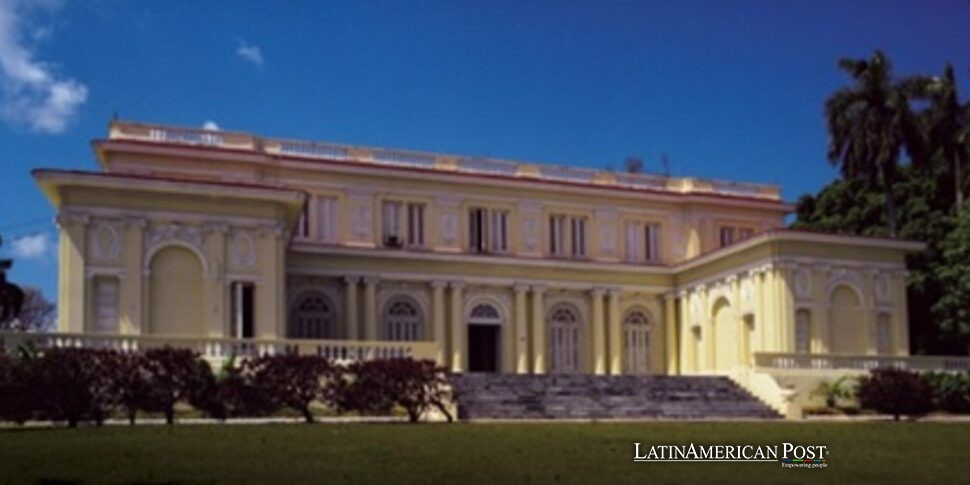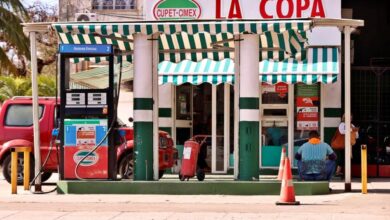Hispanocuban Habanos Joyful After US Ruling Solidifying Historic Cohiba Rights

Habanos, the joint venture owned in part by Cuba’s state tobacco company, is celebrating a decisive United States federal court ruling that reaffirms its Cuban shareholder’s rights to the famed Cohiba brand. The ruling marks a milestone in a decades-long legal saga.
A Legal Victory Years in the Making
In a significant development for premium cigar connoisseurs and international trademark law, Habanos has hailed a recent judgment by US District Court Judge Leonie M. Brinkema, which recognizes Cuba’s state-owned Empresa Cubana del Tabaco (Cubatabaco) as the rightful holder of the Cohiba brand in the United States market.
According to case number 23-cv-227, Cubatabaco has prevailed against General Cigar, a US company that sold cigars under the Cohiba name for decades. This legal victory is the culmination of a protracted battle that began in 1997 when Cubatabaco initiated action to reclaim its signature brand—famed for representing some of the best-known handmade cigars in the world.
“From the start, we have always maintained that Cohiba belongs legitimately to the Cuban enterprise,” said Habanos Legal Director Lisset Fernández García in statements to EFE, referencing the Cuban state tobacco company’s original claim to the brand. The court’s decision, as Fernández noted, means that Cubatabaco may finally register the Cohiba mark in the US marketplace.
Yet the road to a conclusive settlement has been far from straightforward. Washington’s embargo on Havana remains firmly in place and prohibits the sale of Cuban cigars to US consumers. While the American market for premium cigars is extensive, economic sanctions still prevent Habanos and Cubatabaco from capitalizing on this new legal acknowledgment—at least for now.
Embargo Hurdles and the Origins of the Dispute
Fernández brings up the paradox found in this legal victory. “At present, the U.S. embargo still forbids Cuban cigar sales in the United States,” she stated to EFE. In this statement, she emphasized the actual limits of the court decision. For those unfamiliar with the brand’s storied history, Cohiba first emerged in Cuba during the 1960s, ultimately becoming an emblem of quality that captured global attention—minus the US market, where official ties between Havana and Washington have been strained for decades.
General Cigar’s appropriation of the name in the late 1970s fueled a controversy that simmered for years. The matter intensified when Cubatabaco applied to register the Cohiba mark under US law, only to discover that General Cigar had beaten them to it by a few years—officially securing the trademark in 1981, despite full knowledge that the brand was already in use by Cubatabaco, according to court findings.
Cubatabaco cited the 1929 Pan-American Convention, to which Cuba and the United States are signatories. The treaty requires member states to cancel a trademark if the applicant knows another member has established prior use in its own country. By 1972, Havana had registered Cohiba in Cuba, and evidence presented in court demonstrated that General Cigar was fully aware of Cohiba’s Cuban provenance before filing in the US.
Last year, in 2022, the US Trademark Trial and Appeal Board (TTAB) canceled General Cigar’s registrations for Cohiba, ruling that they were illegitimate. However, General Cigar initiated fresh litigation to overturn the TTAB’s decision, which set the stage for Judge Brinkema’s recent federal court judgment. “This decision ends, hopefully once and for all, to the idea that Cohiba can be marketed by anyone other than its rightful owner,” Fernández told EFE.
Impact on the Global Cigar Landscape
For decades, Cohiba has reigned as the flagship among Cuban cigars, forming a core pillar of Habanos’ worldwide portfolio. The company was founded in 1994 as a partnership split evenly between Cubatabaco and a consortium of shareholders linked to the Spanish-French group Altadis (owned by Britain’s Imperial Brands). Today, Habanos boasts a presence in 130 countries across five continents, marketing a range of handcrafted labels, including the famed Montecristo, Partagás, and Romeo y Julieta lines.
In many respects, Cohiba’s uniqueness stems from the quality and heritage of its tobacco grown in Cuba’s Vuelta Abajo region. Over time, the cigar has become symbolic of Cuban craftsmanship—rolled exclusively by highly trained torcedores (cigar rollers). Its distinctive taste profiles and sleek packaging caught the eye of global aficionados, fueling Cohiba’s coveted status and elevating it into one of the most recognized luxury products from the island nation.
Even so, the US market remains an elusive—and massive—frontier. Historically, American consumers represent some of the world’s most fervent enthusiasts of premium cigars. Yet, for more than half a century, the embargo on Cuba has imposed rigid limitations on direct imports of Cuban goods, including tobacco. As a result, while the brand thrives in Europe, Asia, and parts of Latin America, it has yet to be legally available on retail shelves in the United States. “We hope that this ruling paves the way for a future where Cohiba can be sold legally in the U.S.,” a Habanos spokesperson told EFE, adding that any broader commercial introduction would hinge on American policy changes regarding trade sanctions.
For critics of current U.S.-Cuba relations, this court case highlights contradictions in America’s legal framework. This text identifies the legal protections given to Cubatabaco’s intellectual property. It specifies a trade barrier restricting the direct use of intellectual property in trade. The judicial decision is a positive result. It does not now create real financial benefits for Habanos or Cubatabaco.
Of course, the judgment’s importance is larger than the Cohiba brand. It reaffirms the broader principle that a company cannot lawfully register a trademark in one signatory country to the Pan-American Convention if it knew it was already in use in another signatory country. In effect, the judgment signals that brand owners—particularly those associated with Cuban enterprises—retain legal protections, even amid fraught diplomatic contexts.
Also Read: Chile Wrestles Surging Antarctic Tourism Worries
Speculation about possible consequences continues. Will the US Congress or the administration consider the long-standing embargo on Cuba again? This decision is a symbolic win for Cubatabaco. Real reform is not certain. The resolution of these larger geopolitical questions could shape whether Cohiba and other Cuban cigar brands eventually appear in American humidors, legally competing with non-Cuban peers. “It has been more than two decades of judicial back-and-forth, but the federal court has now recognized the rightful owner,” said Fernández, underscoring Habanos’ optimism. However, the following steps remain subject to the broader tapestry of U.S.-Cuba relations, ensuring the Cohiba saga captivates cigar lovers and intellectual property lawyers.





